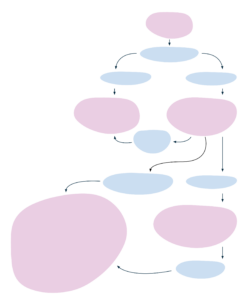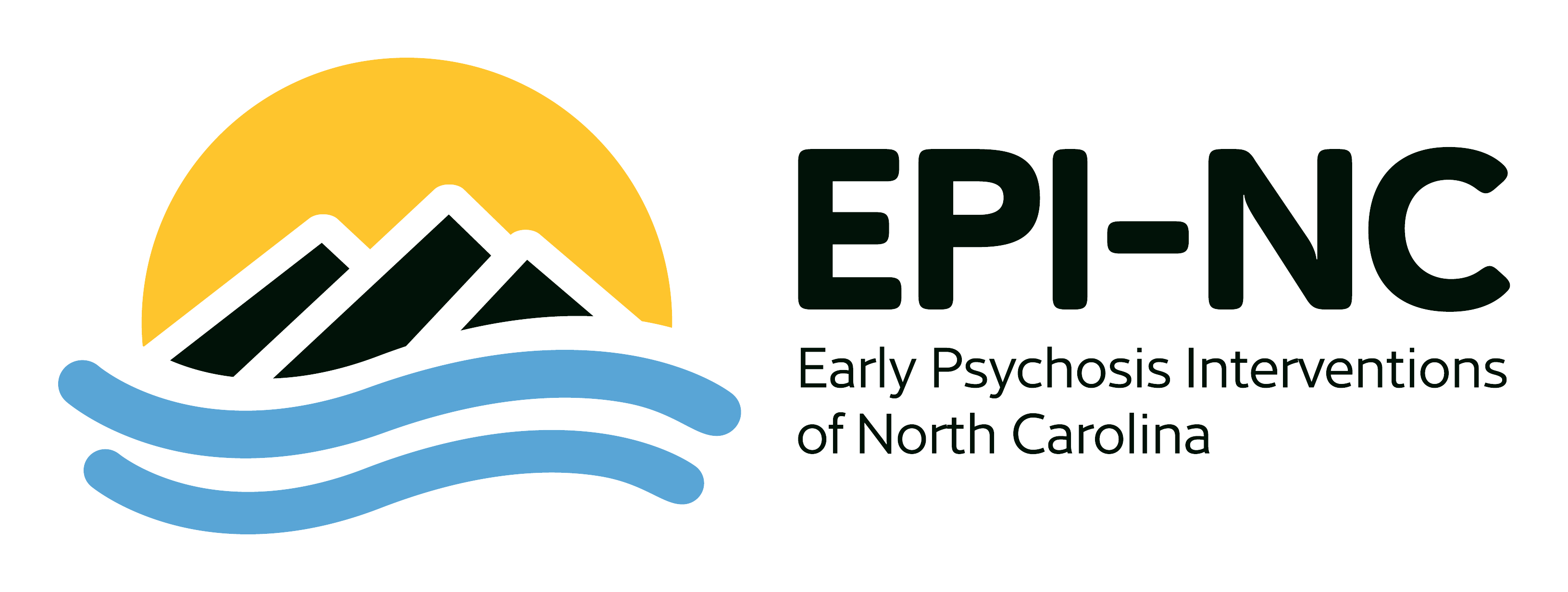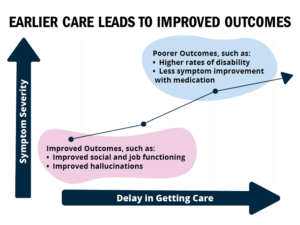Community Outreach and Education
SCOPE-NC: Systems for Community Outreach and Psychosis Education – North Carolina
Our goal is to improve long-term outcomes for individuals with early psychosis through improving identification and facilitating access to appropriate care as early as possible. Psychosis is a set of experiences that makes it difficult for a person to differentiate what is real and what is not real. Psychotic symptoms can include hallucinations (seeing, hearing, or feeling things that are not there), delusions (false beliefs), and disorganized thinking. When someone is experiencing psychosis, it is important to have a timely evaluation for appropriate treatment as psychosis can be caused by medical conditions, mental health conditions, and substance use.
The sooner individuals with early psychosis are identified and engage in appropriate treatment (or a have shorter duration of untreated psychosis [DUP]), the better outcomes generally are.
Earlier Care Leads to Improved Outcomes
As the community outreach arm of EPI-NC, SCOPE-NC aims to scope out for our State and communities how to recognize an individual is experiencing early psychosis, support them in the community, and obtain appropriate, timely care for them.
To enable community action, we have created a toolkit with specialized support tools tailored to a range of community members. This broad toolkit will allow everyone, from doctors to schools to families, to have the knowledge to obtain appropriate, early psychosis care for individuals they are concerned about. By working as a community and a State, we can improve outcomes for people with early psychosis.
In our toolkit, individuals can:



Find ways to support individuals with early psychosis:
- Clinical tools
- E-PROMPT a community clinician mentoring program—AVAILABLE NOW!
- Educational training for clinicians, schools, and the community—coming soon
- Education support recommendations—coming soon

